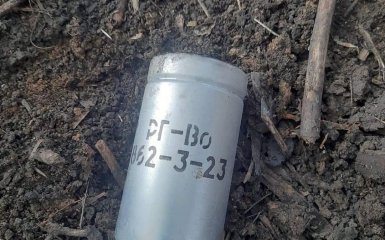Since the beginning of Russia's full-scale invasion of Ukraine, more than 2,000 Ukrainian servicemen have been hospitalized with chemical poisonings used by the Russians, and three have died.
Points of attention
- Over 2,000 Ukrainian servicemen have been hospitalized with chemical poisonings from Russian ammunition during the full-scale invasion by Russia.
- Ukraine complies with international law prohibiting chemical weapons and has joined a joint statement supporting the strict implementation of the Chemical Weapons Convention.
- Russia is using chemical weapons prohibited for use in war, such as toxic irritants CS and CN, against the Ukrainian Armed Forces on a large scale.
- The Ukrainian military does not use chemical substances, while Russia increasingly employs chemical attacks against Ukrainian troops on the frontline.
- Radiation, chemical, and biological reconnaissance units have reported numerous cases of dangerous chemical substances being used in ammunition by the Russian forces in Ukraine.
Russia is using chemical weapons on a large scale at the front against the AFU
This was announced at a briefing by Artem Vlasyuk, head of the Environmental Safety and Civil Protection Department of the Radiation, Chemical, and Biological Protection Department of the Armed Forces Support Forces Command.
In total, since the beginning of the full-scale invasion, more than 2,000 servicemen with varying degrees of poisoning by unknown or known chemical substances have been sent to medical facilities, both military and general medical infrastructure of Ukraine, with symptoms of poisoning.
Including the toxic irritants CS and CN, which are used in anti-riot munitions. As for the dead servicemen, three such fatalities are currently known.
He did not name the names of the deceased and the units in which they served for security reasons.
But in three cases we have a doctors' conclusion stating death as a result of acute poisoning by an unknown chemical substance," said Vlasyuk
At the same time, he emphasized that the Ukrainian army does not use chemical substances.
These means are prohibited for use, therefore Ukraine, as a signatory to the Chemical Weapons Convention, and its Armed Forces, which are the guarantors of its independence and sovereignty, comply with international law and the requirements of the Chemical Weapons Convention in particular.
Ukraine joined a joint statement on behalf of 59 states in support of the strict implementation of the provisions of the Chemical Weapons Convention, in particular the prohibition of the use of chemical riot control agents as a method of warfare.
Russia is increasingly using chemical attacks against the Ukrainian Armed Forces on the frontline
This was reported by the communications department of the Support Forces Command of the Armed Forces of Ukraine.
Along with conventional fire weapons, the enemy uses ammunition equipped with dangerous chemicals, such as K-51 and RG-VO, which are riot control weapons and are prohibited for use as means of warfare. There is also a significant share of ammunition containing dangerous chemical compounds of an unidentified type. In October 2024, the radiation, chemical, biological reconnaissance units of the Support Forces of the Armed Forces of Ukraine recorded 323 such cases.
It is noted that since the beginning of the large-scale invasion, radiation, chemical, and biological intelligence units have been directly recording cases of the use of dangerous chemical substances on the battlefield.



